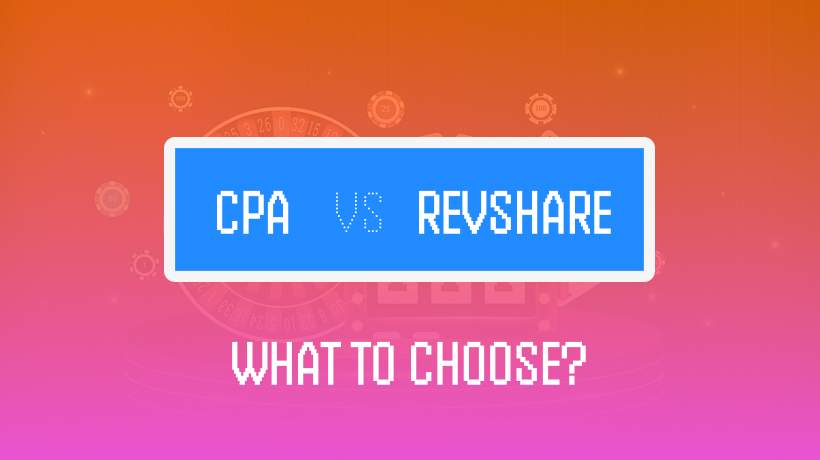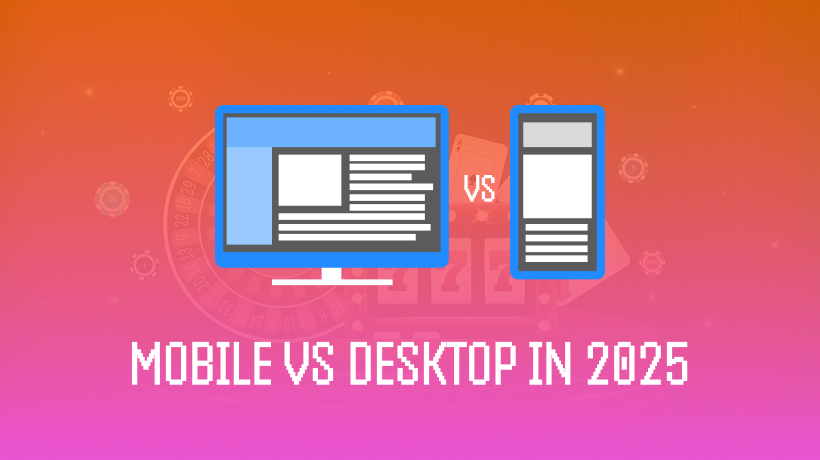This choice matters more than most affiliates realize. Pick CPA, and you’ll earn $200-$600 per player upfront, then nothing ever again.
Choose RevShare, and that same player could generate $1,000-$3,000 over their lifetime. But here’s the catch: you might wait six months before RevShare earnings match what CPA pays immediately.
The iGaming affiliate market hit $78.66 billion in 2024, with operators offering commission structures that range wildly. Some affiliates chase immediate CPA payouts. Others build passive RevShare income that pays for years. The smart ones? They match their model to their actual situation.
There’s no universal “best” choice here. A new affiliate running paid ads needs different economics than an SEO veteran with established content. Your cash flow, traffic quality, and risk tolerance all point toward different answers.
So we’ll break down how each model actually works, show you real numbers from major operators, and explain when each makes sense. By the end, you’ll know exactly which approach fits your business, not because someone told you what’s “better,” but because you understand the trade-offs.
How These Commission Models Actually Work
RevShare: Getting Paid Every Month Your Players Gamble
RevShare pays you a percentage of what your referred players lose. Simple as that. When someone clicks your link, registers, and starts gambling, you earn a cut of their losses every single month they keep playing.
Here’s how the money flows: A player deposits $1,000 and loses $800. That’s $800 in gross revenue. But you don’t get paid on the gross. The operator first deducts their costs, maybe $200 in bonuses they gave the player, $50 in payment processing fees, another $50 in chargebacks and admin expenses.
What’s left is Net Gaming Revenue (NGR): $500 in this example.
With a 30% RevShare deal, you earn $150 from that player’s activity that month. Next month, if they’re still playing? You get paid again.
Most programs offer tiered structures that reward performance. Refer five players monthly, you might get 25%. Refer 20, and that jumps to 35%. Top affiliates pulling 40+ players monthly can hit 45-50% rates.
What RevShare Actually Pays: Real Operator Rates
| Operator | Base Rate | Top Tier Rate | Special Terms |
|---|---|---|---|
| Bet365 Partners | 30% | 40% | 45-day cookie tracking |
| 888 Affiliates | 20% | 40% (40+ FTDs) | Tiered based on monthly players |
| Betsson Group | 40% | 45% | No negative carryover |
| DraftKings | 40% first 30 days | 25% ongoing | US markets only |
Payment happens monthly, typically 7-30 days after month-end. Minimum thresholds vary wildly, N1 Partners requires just €20, while others want $250 before they’ll pay out.
The big risk? Negative carryover policies. If your players win more than they lose in a month, some operators will deduct that from your balance. It carries forward until future earnings cover the deficit.
A player wins $37,000? Your balance goes deeply negative. They lose $31,000 next month? You only earn commission on that $31,000, not the net activity. Modern programs increasingly advertise “no negative carryover” as a competitive advantage, your balance simply resets to zero each month instead.
CPA: One Player, One Payment, Done
CPA pays you once when a player qualifies. Usually that means making their first deposit above a minimum threshold, typically $10-$50, and completing verification. Some operators add wagering requirements (bet 1-3x the deposit amount). Meet those conditions, and you get paid.
That’s it. One player, one payment. What happens after doesn’t affect your earnings.
Payment typically arrives within 30 days of the qualifying action. No waiting to see if players stay active. No tracking monthly revenue. The certainty is the whole point.
CPA Rates by Market Tier
| Market Tier | Countries | Typical CPA Range | Why the Difference |
|---|---|---|---|
| Tier 1 | US, UK, Canada, Australia, Germany, Nordics | $200-$600 | High player lifetime value, strong retention |
| Tier 2 | Japan, Brazil, Southern Europe, Czech Republic | $30-$100 | Moderate spending, developing markets |
| Tier 3 | Latin America, Asia, Eastern Europe | $20-$50 | Lower average spend per player |
| Tier 4 | Emerging markets | $10-$30 | Uncertain retention, payment challenges |
Rates also vary by vertical. Sports betting typically pays $100-$300 per player, while casino offers run $200-$600. Poker sits lower at $75-$200 because player economics work differently.
Some programs tier by volume rather than geography. PokerStars Partners pays $75 for 1-20 monthly players, scaling to $150 for 100+ players. Once you hit a tier, all players that month calculate at the higher rate, not just those above the threshold.
The appeal is obvious: you know exactly what each player generates regardless of what happens next. Player never gambles again? Doesn’t matter. Player wins $50,000? Still doesn’t matter. You already got paid.
The Break-Even Point: When RevShare Overtakes CPA
Here’s the question that keeps affiliates up at night: when does RevShare actually earn more than taking the CPA payout?
The answer for most scenarios: 6-12 months after player acquisition.
Let’s work through real numbers. You refer a player. The operator offers $200 CPA or 30% RevShare. That player generates $100 in monthly NGR, a reasonable average for active casino players.
RevShare vs CPA: Month-by-Month Earnings Comparison
| Month | RevShare Earned (30%) | Cumulative RevShare | CPA (One-Time) | RevShare vs CPA |
|---|---|---|---|---|
| 1 | $30 | $30 | $200 | -$170 |
| 3 | $30 | $90 | $200 | -$110 |
| 6 | $30 | $180 | $200 | -$20 |
| 7 | $30 | $210 | $200 | $10 |
| 12 | $30 | $360 | $200 | $160 |
| 24 | $30 | $720 | $200 | $520 |
| 36 | $30 | $1,080 | $200 | $880 |
Month seven is where things flip. Your cumulative RevShare hits $210, finally exceeding the one-time $200 CPA payment. By year’s end, you’ve earned $360, 80% more than CPA. Three years out? You’re at $1,080, which is 440% more than what CPA paid.
But here’s where it gets interesting. You’re not just referring one player and stopping. Each month you add new players while the old ones keep generating revenue.
Month one: refer five players, earn $150 in RevShare.
Month two: those original five keep playing ($150) while you add five more ($150), doubling your income to $300.
Month six: you’ve accumulated 30 active players generating $900 monthly. This compounding effect creates genuine passive income that continues with reduced effort.
Player lifetime value in iGaming typically ranges $500-$5,000, with casino players averaging around $1,200 annually. High-value players spending $200 monthly create $2,400 yearly value. At 30% RevShare, that’s $720 from one referral versus a typical $200-$300 CPA.
The math looks compelling. But there’s a reality check needed: this assumes players stay active. Industry retention data shows many players churn within 3-6 months. Some deposit once and disappear, whereas others win big and withdraw, never returning.
Quality matters enormously here. A player who deposits $50 and churns immediately generates maybe $15-$30 total RevShare, far less than any CPA would’ve paid. A loyal high-roller staying active for years can generate thousands. Your traffic quality determines which scenario you’ll experience more often.
Which Model Fits Your Situation?
Go With RevShare When You Have:
- Quality traffic that actually engages. If you’re building SEO content, running a review site, or managing an engaged community, your audience converts to loyal players. These aren’t people clicking random ads, they’re reading your poker strategy guides or following your betting tips. That engagement translates to retention, which is what makes RevShare work.
- Financial breathing room. Can you wait 6-12 months for earnings to build? RevShare starts slow. Month one might generate $200 while CPA would’ve paid $2,000 for the same ten players. If you’re living paycheck to paycheck or funding ad campaigns, that gap creates real problems.
- Trust in operator performance. Bet365 gets consistent praise for honoring lifetime RevShare deals even when culling inactive affiliates. Newer operators? Not so much. RevShare ties your earnings to their retention capabilities and honest reporting for months or years. Only bet on operators with proven track records.
- Long-term business vision. You’re building an asset, not chasing quick money. RevShare creates genuine passive income. Stop actively marketing for a month, and quality RevShare deals keep paying. That’s equity in your business.
Choose CPA When You Need:
- Immediate cash flow. Running Google Ads or Facebook campaigns? You need to know within weeks whether spending $100 to acquire a customer who generates $200 CPA creates a viable business. Paid traffic affiliates almost exclusively use CPA because they can’t afford to wait months for ROI validation.
- Predictable revenue modeling. CPA delivers certainty. Ten players at $200 each equals $2,000, regardless of what happens next. This predictability enables accurate budgeting, hiring decisions, and growth planning that RevShare’s variable earnings make nearly impossible.
- Testing and validation phases. New traffic source? Unfamiliar operator? Unknown geographic market? CPA provides fast feedback on conversion rates and player quality. After validating that your traffic performs, you can negotiate switching to RevShare with confidence.
- Protection from uncertainty. Player wins don’t affect your CPA earnings. Operator retention problems don’t matter. You got paid once, and that money stays yours. This risk protection matters when working with newer operators or markets with uncertain player behavior.
Hybrid Models: The Practical Middle Ground
Hybrid structures combine both models at reduced rates, typically $100-$200 CPA plus 10-25% RevShare. You’re receiving partial immediate payment while keeping upside from player lifetime value.
Real example: Four qualified players in a month generate $900 total revenue. A hybrid deal paying $200 CPA + 10% RevShare delivers $800 immediately (4 × $200) plus $90 in ongoing RevShare. That’s $890 month one versus just $90 with pure RevShare, solving cash flow problems while building recurring income.
Quick Decision Framework
| Your Situation | Recommended Model | Why |
|---|---|---|
| New affiliate, paid traffic, need immediate ROI | CPA | Fast validation, predictable returns |
| Established content site, quality organic traffic | RevShare | Maximizes long-term value from engaged audience |
| Testing new operators or markets | CPA or Hybrid | Reduces risk while gathering performance data |
| Growing business, need cash flow + future income | Hybrid | Balances immediate needs with long-term building |
| Experienced affiliate with 6+ months data | Switch to RevShare | Data proves traffic quality justifies waiting |
One practical approach: start with hybrid for 6-12 months while tracking actual player performance. Then switch to pure RevShare with operators where your players demonstrate strong retention, while keeping CPA for others. Your optimal model can change as your business evolves and you gather real performance data.
Just remember: operator reliability matters more than advertised rates. Bet365 honors lifetime deals. Smaller operators might terminate your RevShare arbitrarily. For long-term RevShare bets, reputation beats rate every time.





